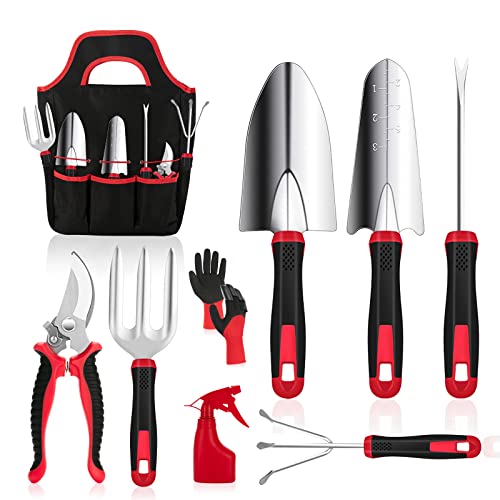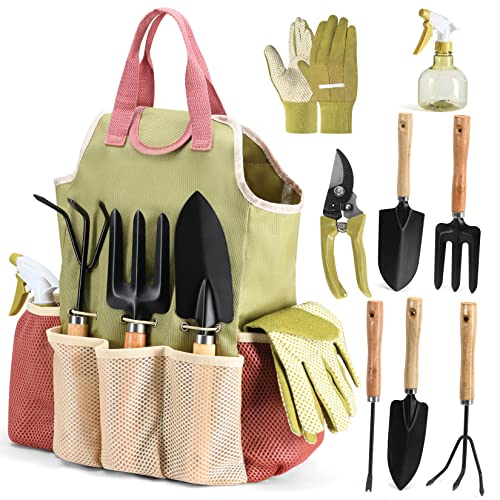This post may contain affiliate links or ads and we may earn a small commission when you click on the links at no additional cost to you. As an Amazon Affiliate, we earn from qualifying purchases. This is at no additional cost to you and helps with our website expenses.
Embarking on hobbies related to biology, particularly those focused on botany, opens the door to an incredible journey.
This is much more than casual entertainment; it’s an immersive experience that reveals the intricate wonders of the natural world. With botany-based hobbies, you’ll find opportunities for hands-on learning and deep appreciation of nature’s complexity.
Plus, these rewarding pastimes can serve as a stepping stone to career advancements in the world of biology.
The Joyful Exploration of Hobbies Related to Biology
Hobbies revolving around biology offer more than just a way to spend free time. They’re an exhilarating voyage of discovery.
Imagine the joy of watching a bird soar high in the sky, or the thrill of decoding the complexities of home fermentation, or the awe-inspiring journey through your own genetic history.
It’s about much more than simply learning—it’s about creating deeper connections with the living world around us, embracing the beauty and complexities of life, and continually nurturing our innate curiosity.
A Panorama of Biology-Related Hobbies
| Preview | Product | Price | |
|---|---|---|---|
| Learning Resources Anatomy Models Bundle Set – Skeleton and Physiology, Human Body Model , Science… | $69.00 | Buy on Amazon |
Biology is a vast and varied field, with a plethora of hobbies that span its many branches. Beyond botany, there’s the dynamic world of zoology, the unseen marvels of microbiology, and the mind-bending puzzles of genetics.
Each of these fields offers an array of hobbies—from bird-watching and insect-collecting, to home fermentation and DIY biohacking. Each one provides a window into a unique aspect of life and sparks a multitude of intriguing questions.
Your Journey Through Biology Begins Here
So, whether you’re an intrigued adult, a passionate student, or an experienced biologist looking for a refreshing perspective, buckle up for an exciting exploration.
We’re about to dive into the captivating world of biology through these hobbies and uncover the potential career paths they may carve out.
Botany Hobbies: A Journey into the World of Plants
Botany is a fascinating field that opens up a world teeming with life and color. Whether you’re taking your first steps or you’re a seasoned enthusiast, there’s always something new to discover.
Let’s explore two of the most engaging hobbies in botany: gardening and plant identification and foraging.
Gardening: Your Personal Green Paradise
Gardening is one of the most popular botany-related hobbies, and for good reason. It’s hands-on, relaxing, and incredibly rewarding. And the best part? You don’t need to be an expert to get started!
Getting Started with Gardening
Here’s what you need to create your very own garden:
- Space: Whether it’s a windowsill, a balcony, or a backyard, find a spot that suits you.
- Plants: Choose a variety of plants that work well in your climate and space. These can range from flowers to herbs, vegetables, or even small trees.
- Gardening tools: A good set of gardening gloves, a trowel, a watering can, and maybe a small rake would be a great start.
- Soil and compost: Good quality soil and compost are essential for healthy plant growth.
Once you’ve gathered your materials, it’s all about planning your space, planting your seeds or seedlings, and nurturing them with regular watering and care.
The Path to a Botany Career
Believe it or not, your gardening hobby could be the first step towards a rewarding career in botany or a related field. The skills you gain, such as understanding plant growth patterns and identifying plant diseases, are invaluable in professions like horticulture, landscape design, and agricultural science.
Resources to Help You Grow
Ready to dig deeper? These resources can help you take your gardening hobby to the next level:
- Botany for Gardeners by Brian Capon: A great book for beginners and enthusiasts alike.
- Gardeners’ World: This website offers tips and tricks for gardening at all levels.
- PlantSnap: A mobile app that helps identify plants with a quick photo.
Hobbies Related to Biology: Plant Identification and Foraging
Plant identification and foraging take you beyond the confines of your garden and into the wild. It’s about understanding the vast diversity of plant life around us and learning how to sustainably gather edible plants.
Foraging 101
Here’s what you’ll need to get started with plant identification and foraging:
- A local field guide: This will help you identify plants in your region.
- Foraging bag or basket: To hold your plant finds.
- A camera or a notepad: To document your discoveries.
The key to successful foraging is careful identification, responsible harvesting, and of course, knowing which plants are safe to consume!
A Career in the Wild
Plant identification and foraging can open doors to a range of careers. You could become a field biologist, a park ranger, a naturalist, or even a wilderness survival instructor. The knowledge of plants you gain is a valuable asset in many environmentally-focused professions.
Resources for Aspiring Foragers
Looking to learn more? Here are some resources to help you:
- The Forager’s Harvest by Samuel Thayer: A comprehensive guide to identifying, harvesting, and preparing edible wild plants.
- iNaturalist: An app that helps identify plants and animals around you.
- Plant Forager: An online database of edible plants worldwide.
Whether you’re growing a lush garden at home or identifying plants in the great outdoors, botany-related hobbies offer a wonderful way to connect with nature, learn something new, and even guide your career choices.
Zoology Hobbies Related to Biology: An Exciting Expedition into the Animal Kingdom
When it comes to zoology, the world truly is your oyster. With a wide range of animals to observe and study, you can take your passion for the animal kingdom in any direction you like.
Let’s delve into two captivating hobbies related to biology in zoology: bird watching and insect collecting.
Bird Watching: The Sky’s the Limit
Bird watching, or birding, is a favorite pastime for many, and it’s easy to see why. It’s both calming and exciting, and it offers an amazing window into the avian world.
Taking Flight with Bird Watching Hobbies Related to Biology
Here’s what you need to get your bird watching journey off the ground:
- Binoculars: A pair of good-quality binoculars is essential for observing birds in detail.
- Field Guide: A field guide for birds in your region will help you identify different species.
- Notebook and Pen: To jot down your observations.
You can bird watch pretty much anywhere – from city parks and gardens to forests and wildlife reserves.
Career Paths for Bird Lovers
Believe it or not, bird watching can be more than just hobbies related to biology. It can be a stepping stone towards a career in ornithology (the study of birds), wildlife conservation, or eco-tourism.
Resources for Aspiring Bird Watchers
Here are some resources that can help you on your bird watching journey:
- The Sibley Guide to Birds by David Allen Sibley: This comprehensive guide covers a wide variety of North American bird species.
- eBird: A website from the Cornell Lab of Ornithology that provides a wealth of information on bird species and birding hotspots.
Hobbies Related to Biology: Insect Collecting, Small Creatures, Big Discoveries
Insect collecting may not be for the faint of heart, but it offers a fascinating look into the world of tiny, complex creatures. From butterflies to beetles, there’s a myriad of species to discover.
Buzzing into Insect Collecting
Ready to explore the insect world? Here’s what you’ll need:
- Insect net: An essential tool for catching flying insects.
- Collection jars: For temporary storage of your catches.
- Tweezers: To gently handle insects.
- Identification Guide: To help you identify the insects you find.
Remember, always handle insects carefully to avoid harming them, and release them safely back into their environment.
Career Opportunities with Insects
Insect collecting can also lead to a professional path. Entomology (the study of insects) is a major field in zoology. Jobs range from pest control and public health to working in museums or academia.
Resources for Budding Entomologists
Check out these resources to help you dive deeper:
- The National Audubon Society Field Guide to North American Insects and Spiders: A comprehensive guide to a variety of insects and spiders.
- Insect Identification: An online tool for identifying insects based on region and appearance.
From the skies to the undergrowth, zoology-related hobbies offer endless opportunities for exploration and learning.
Hobbies Related to Biology: Microbiology Hobbies and Unlocking the Wonders of the Microscopic World
Microbiology is a field that uncovers the extraordinary in the tiniest of forms. It’s a world unseen by the naked eye, but full of profound discoveries. Let’s plunge into two captivating hobbies in microbiology: home fermentation and microscope exploration.
Home Fermentation: A Delicious Science
Home fermentation is a fun and tasty way to delve into microbiology. It involves cultivating beneficial microorganisms to transform food, and it can be as simple as making homemade yogurt or as adventurous as brewing your own beer.
Kickstarting Your Fermentation Hobby
Here’s what you’ll need to start fermenting at home:
- Ingredients: This will depend on what you want to ferment. For example, milk for yogurt, or malt, hops, and yeast for beer.
- Equipment: A simple glass jar can be enough for many ferments, but some might require special equipment like a brewing kit.
- Fermentation guide: A good recipe or guide to walk you through the process.
Always remember to maintain cleanliness during the process to avoid harmful bacterial growth.
Careers in Fermentation Science
This fun hobby can be the start of a career in fermentation science. Such careers can be found in the food and beverage industry, pharmaceuticals, and biotechnology.
Hobbies Related to Biology Resources for Home Fermenters
Here are some resources to help you ferment with confidence:
- The Art of Fermentation by Sandor Ellix Katz: An in-depth exploration of the concept and process of fermentation.
- Fermented Foods: An online platform offering a variety of fermentation recipes.
Microscope Exploration: A Glimpse into the Unseen World
A whole universe exists in a drop of pond water, and with a microscope, you can explore it. Observing microorganisms can be a fascinating hobby for anyone interested in life’s smallest entities.
Peering into the Microscopic World
Ready to start exploring? Here’s what you’ll need:
- Microscope: A good quality microscope is an investment that will open up the micro world for you.
- Slide set: You’ll need blank slides and coverslips for preparing your specimens.
- Sample materials: Anything from pond water to a scraping from your own mouth can reveal interesting microorganisms.
Remember to handle the microscope with care and follow proper safety guidelines when dealing with biological samples.
Career Opportunities in Microbiology
Microscope exploration can be the stepping stone to a career in microbiology, with job opportunities in healthcare, research, and industry.
Resources for Micro-Explorers
To aid your exploration, consider these resources:
- The World of the Cell by Becker, Kleinsmith, and Hardin: An excellent book that provides an introduction to cell biology.
- Microbe Hunter: An online magazine and forum dedicated to amateur microscopy.
By fermenting foods or peering through a microscope, hobbies in microbiology not only help us appreciate life on a microscopic level, but also open up a range of career possibilities.
Genetics Hobbies Related to Biology: Decoding the Blueprint of Life
Genetics is the study of genes and their roles in inheritance – in other words, how traits are passed from parents to offspring. It’s a field that offers intriguing possibilities for hobbyists.
Let’s unravel two engaging hobbies in genetics: personal DNA testing and biohacking.
Personal DNA Testing: A Journey into Your Genetic History
Personal DNA testing is a way to explore your own genetic makeup. With just a simple at-home DNA kit, you can uncover your ancestral roots, learn about your genetic health risks, and even discover your traits.
Embarking on Your Genetic Journey of Hobbies Related to Biology
Ready to dive into your own DNA? Here’s what you need:
- DNA test kit: There are many on the market, so choose one that suits your curiosity – whether that’s ancestry, health, or traits.
- Saliva or cheek swab: Most kits require a saliva sample or a cheek swab.
Remember, while these tests can provide fascinating insights, they should not be used as a substitute for professional medical advice.
Career Paths in Genetics
Your hobby in personal genetics could spark an interest in a career in genetics or genomics. These fields have roles in healthcare, research, forensics, and more.
Resources for DNA Detectives
Here are some resources to help you understand your genetic data better:
- The Family Tree Guide to DNA Testing and Genetic Genealogy by Blaine T. Bettinger: A comprehensive guide to understanding DNA testing for ancestry.
- Promethease: A tool to analyze your raw DNA data for genetic health risks.
Hobbies Related to Biology: Biohacking DIY Biology at Its Best
Biohacking, or DIY biology, is a broad and exciting field where enthusiasts conduct experiments, often related to biotechnology and genetics, outside traditional institutions.
Becoming a Biohacker
Interested in biohacking? Here’s what you’ll need:
- Biohacking Kit: Kits like those offered by The Odin provide the basics for genetic engineering projects at home.
- Safety Equipment: Always use gloves and goggles to protect yourself.
Remember, biohacking comes with ethical and safety considerations. Always follow guidelines to ensure your experiments are safe and ethical.
Career Opportunities for Biohackers
Biohacking can lead to a career in biotechnology, genetic engineering, or synthetic biology.
Resources for Biohackers
These resources can guide your biohacking journey:
- Biohacker’s Handbook by Olli Sovijärvi, Teemu Arina, and Jaakko Halmetoja: A comprehensive guide to biohacking.
- DIYBio: An organization dedicated to making biology accessible to hobbyists.
Whether you’re exploring your own genome or tinkering with genes in your DIY lab, genetics offers rewarding and engaging hobby options. It also opens up a world of career opportunities in a rapidly advancing field.
Wrapping it Up: Hobbies Related to Biology to Career Paths in Biology
It’s clear that the beauty of biology lies in its boundless opportunities for exploration. As we’ve seen, botany, zoology, microbiology, and genetics each offer their unique perspective on the intricate web of life.
Whether you’re an avid nature lover or more inclined towards the micro world, there’s a hobby out there that will satiate your curiosity.
These hobbies are not just enjoyable pastimes; they can serve as springboards to meaningful careers in their respective fields. Your fascination with plants could lead to a career as a botanist, agricultural scientist, or horticultural consultant.
Your interest in observing animals might inspire you to become a wildlife biologist, conservation officer, or a veterinary physician. If your passion lies in the microscopic world, careers in clinical microbiology, fermentation science, or biotechnology may be on your horizon.
And your engagement with genetics might take you into fields such as genetic counseling, genomics, or forensic science.
There’s a myriad of resources available, both online and offline, to guide and enhance your experience.
Remember, the key to a fulfilling hobby is to approach it with curiosity, persistence, and a sense of wonder. In the words of biologist Rachel Carson, “One way to open your eyes is to ask yourself, ‘What if I had never seen this before? What if I knew I would never see it again?'”
So, equip yourself with the right tools, dive into your chosen hobby, and who knows? You might find yourself on a path leading to a fulfilling biology-related career, doing what you love every day.



























